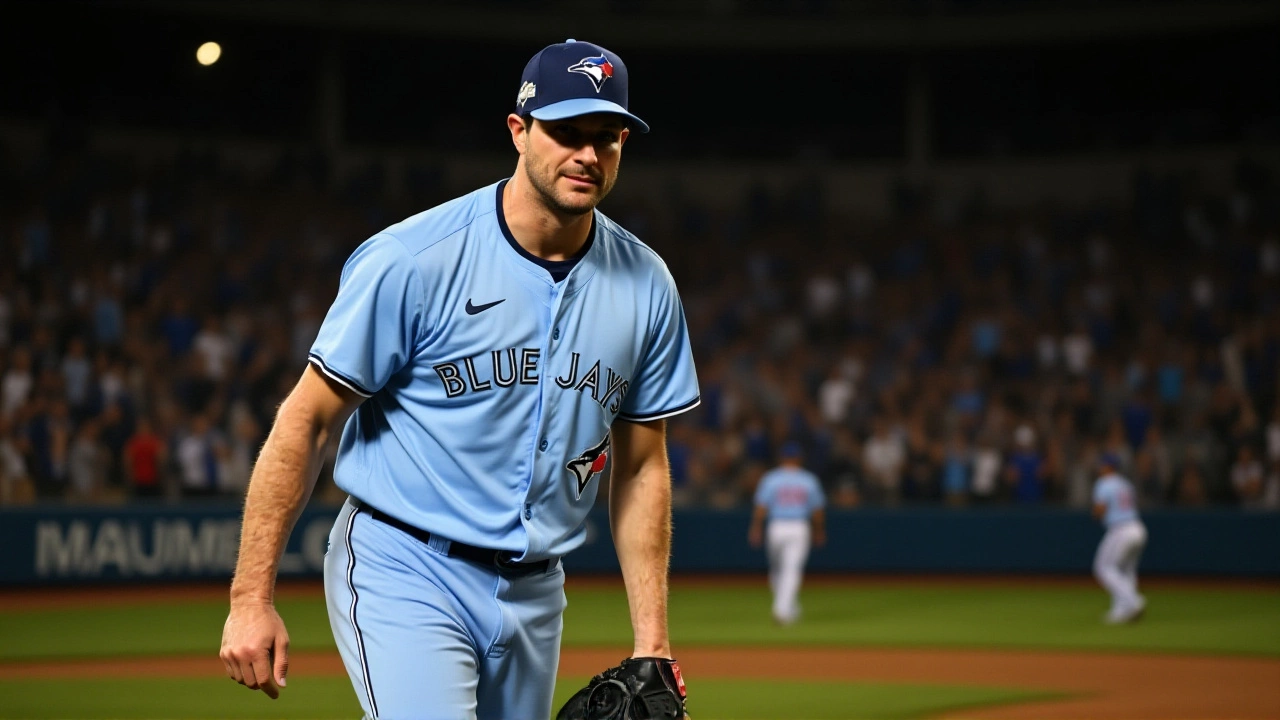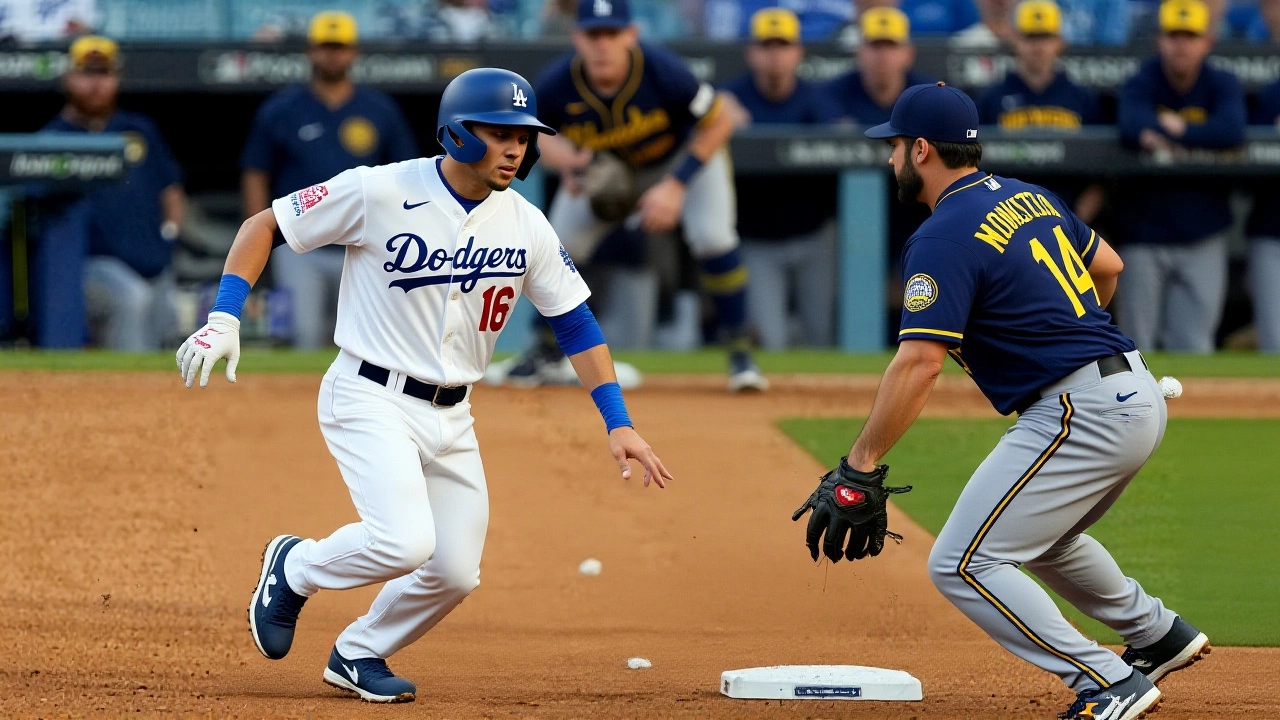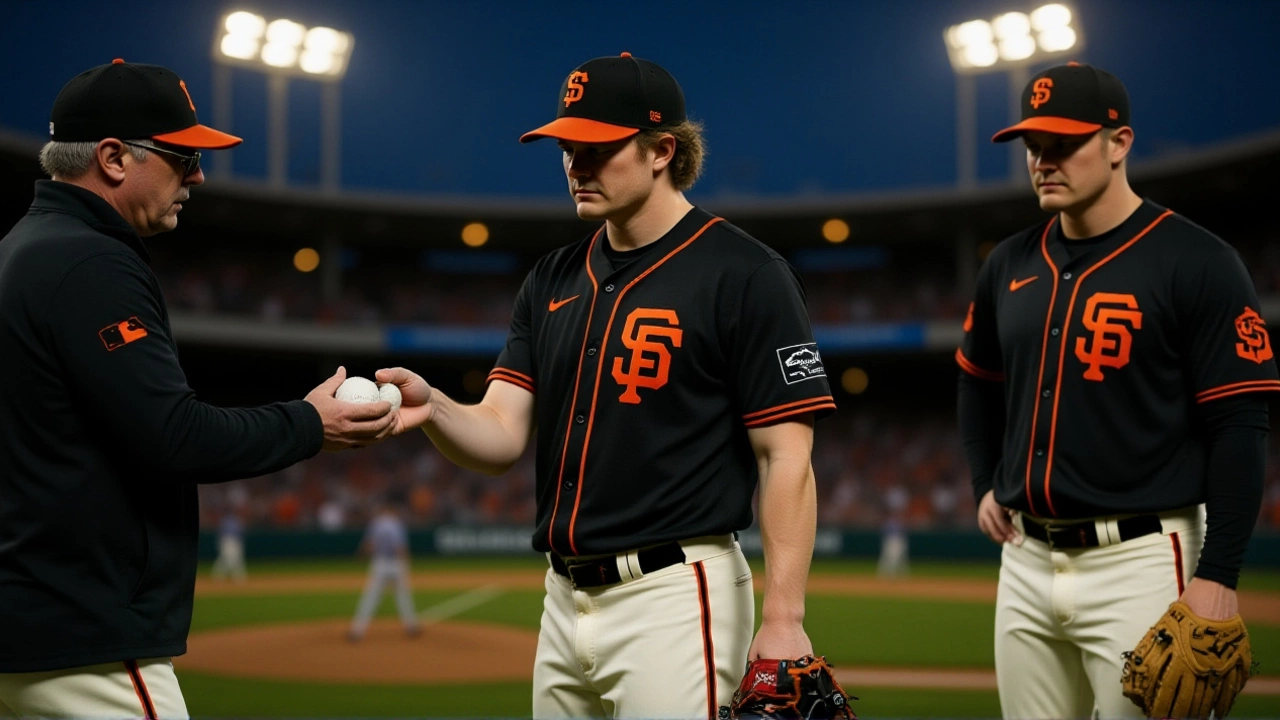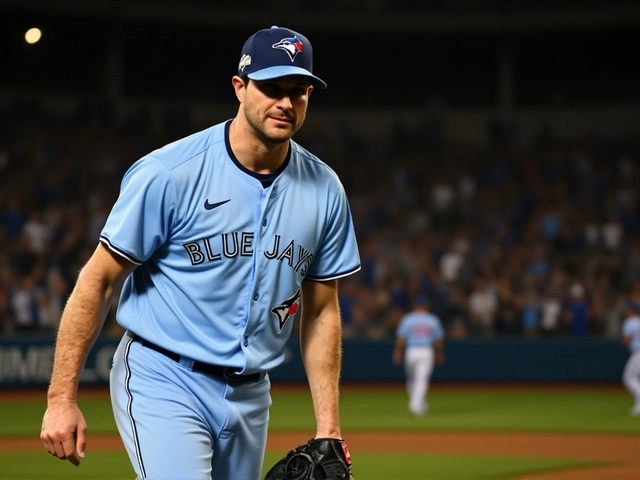Blue Jays Blast Mariners 8-2 in ALCS Game 4, Series Tied 2-2

On , the Toronto Blue Jays turned T-Mobile Park into a runway, pounding the Seattle Mariners 8‑2 in Game 4 of the ALCS. The win evened the best‑of‑seven series at 2‑2 and forced the showdown back to Seattle for Game 5.
Road Warriors: Toronto’s Turnaround in Seattle
After dropping the first two contests at Rogers Centre, the Jays packed a punch in the Pacific Northwest that many pundits called "postseason-proof". In Games 3 and 4, Toronto erupted for 21 runs while holding the Mariners to just six—a swing of 15 runs that flips the narrative on its head. The shift was as stark as night turning into day; Seattle’s early dominance (13‑4 after two games) melted away under a blizzard of home runs and timely hitting.
Key Performances and Historic Milestones
Vladimir Guerrero Jr., the 26‑year‑old designated hitter, launched his fifth postseason homer in the seventh inning, a soaring blast that cleared the right‑field fence and landed on the warning track. That summer‑long sprint set a new franchise record for most home runs in a single postseason, a stat confirmed by Deja Blue, a researcher with SPORTSNET. Across the plate, second‑baseman Andrés Giménez added his own long ball, making it two homers for Toronto in the same frame.
Veteran right‑hander Max Scherzer, at 41, stared down the Mariners’ lineup in the fourth inning, refusing to leave the mound even as tension rose. His composure helped shut down Seattle’s rally, and he finished with six innings of work, surrendering just one run. "I’m not going anywhere until my team tells me otherwise," Scherzer joked in the clubhouse, a quip that underscored his iron‑clad confidence.
Reactions from Managers and Front Office
Blue Jays manager John Schneider praised the collective effort, saying, "It's great belief. It's sticking to your plan and knowing you're just a moment from getting connected at the plate. This team relies on all nine guys. I've never seen a lineup do as many things consistently as they do." Across the border, Mariners skipper Scott Servais remained cautiously optimistic, noting the bullpen’s 2.1 scoreless innings but acknowledging the need to tighten up in the fourth.
General Manager Ross Atkins highlighted the preparation that paid off: "What you're seeing is the culmination of months of preparation and the confidence our players have in each other regardless of venue." Meanwhile, Seattle’s front office, led by Jerry Dipoto, vowed to adjust the pitching rotation, pointing to a jump in the Mariners’ ERA from 2.00 in the first two games to 5.75 in the last two.

Statistical Shift: From Deficit to Dominance
According to the MLB statistics department, Toronto’s slugging percentage surged from .312 in Games 1‑2 to .583 in Games 3‑4. Their home‑run tally jumped from a single long ball early in the series to five in Seattle alone. The offensive explosion wasn’t just about power; on‑base percentage climbed to .421, thanks to a string of walks and clutch hits.
Seattle’s offense, which had been prolific in the first two outings (13 runs), stalled after the seventh. Eugenio Suárez drove in Julio Rodríguez with a single in the sixth, but a throwing error on the base‑running play erased momentum. Relievers Andrés Muñoz and Robbie Ray combined for 2.1 scoreless innings, yet the damage was already done.
What Lies Ahead: Game 5 and Beyond
Game 5 is set for back at T‑Mobile Park. If the Jays keep the pressure on, they could force a Toronto‑hosted Game 6 on Monday, October 19, and possibly a decisive Game 7 on Tuesday, October 20, at Rogers Centre. Analysts are already debating whether Seattle can reclaim the mound or if Toronto will continue to redefine road‑team dominance.

Key Facts
- Final score: Blue Jays 8, Mariners 2
- Series tied 2‑2 in the ALCS
- Vladimir Guerrero Jr.’s 5th postseason homer – franchise record
- Max Scherzer (41) delivered six shutout‑plus innings
- Toronto’s home‑run total in Games 3‑4: 5
Frequently Asked Questions
How does this victory affect the Blue Jays' chances of reaching the World Series?
Evening the series at 2‑2 restores momentum for Toronto and puts them in a position to dictate pace. Historically, teams that win two straight road games in a best‑of‑seven series improve their odds of advancing by roughly 35 %. If they clinch Game 5, they could head home with a 3‑2 lead, forcing Seattle into a do‑or‑die scenario.
What led to the dramatic offensive swing from Games 1‑2 to Games 3‑4?
A combination of adjustments in swing mechanics, a more aggressive approach on two‑strike counts, and a favorable wind blowing out of left‑field contributed. Additionally, the Jays’ coaching staff emphasized sit‑and‑wait strategies that paid off once Seattle’s starter fatigue set in.
Who are the key players to watch in Game 5?
For Toronto, keep an eye on Guerrero Jr. and rookie shortstop Isiah Kiner‑Falefa, who’s been hot off the bench. Seattle will lean on pitcher Tyler Glasnow and the speed of outfielder Jarred Kelenic to spark a comeback.
Has any ALCS team previously won two consecutive road games after losing the first two at home?
Yes, the 2004 Boston Red Sox did it against the New York Yankees, flipping a 0‑2 deficit into a 3‑2 series lead. However, such turnarounds are rare—only 12% of ALCS matchups in the past 30 years have seen a team win back‑to‑back road games after an opening home‑field loss.
What does the series schedule look like if it goes the distance?
Should the series stretch to seven games, Game 6 will be played on Monday, October 19, at Rogers Centre in Toronto, followed by a decisive Game 7 on Tuesday, October 20, at the same venue. The tight travel schedule means both clubs will have only a single day of rest between the final two games.
